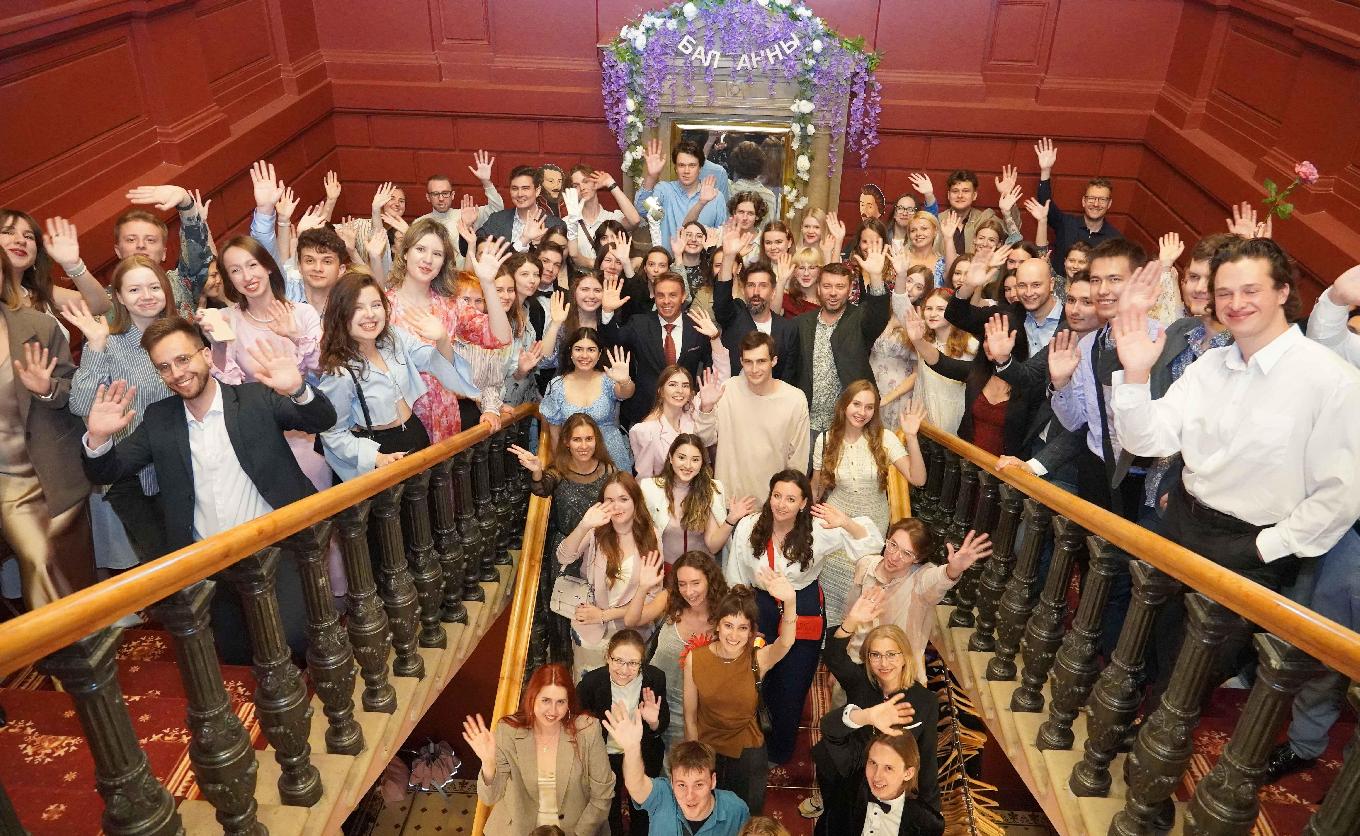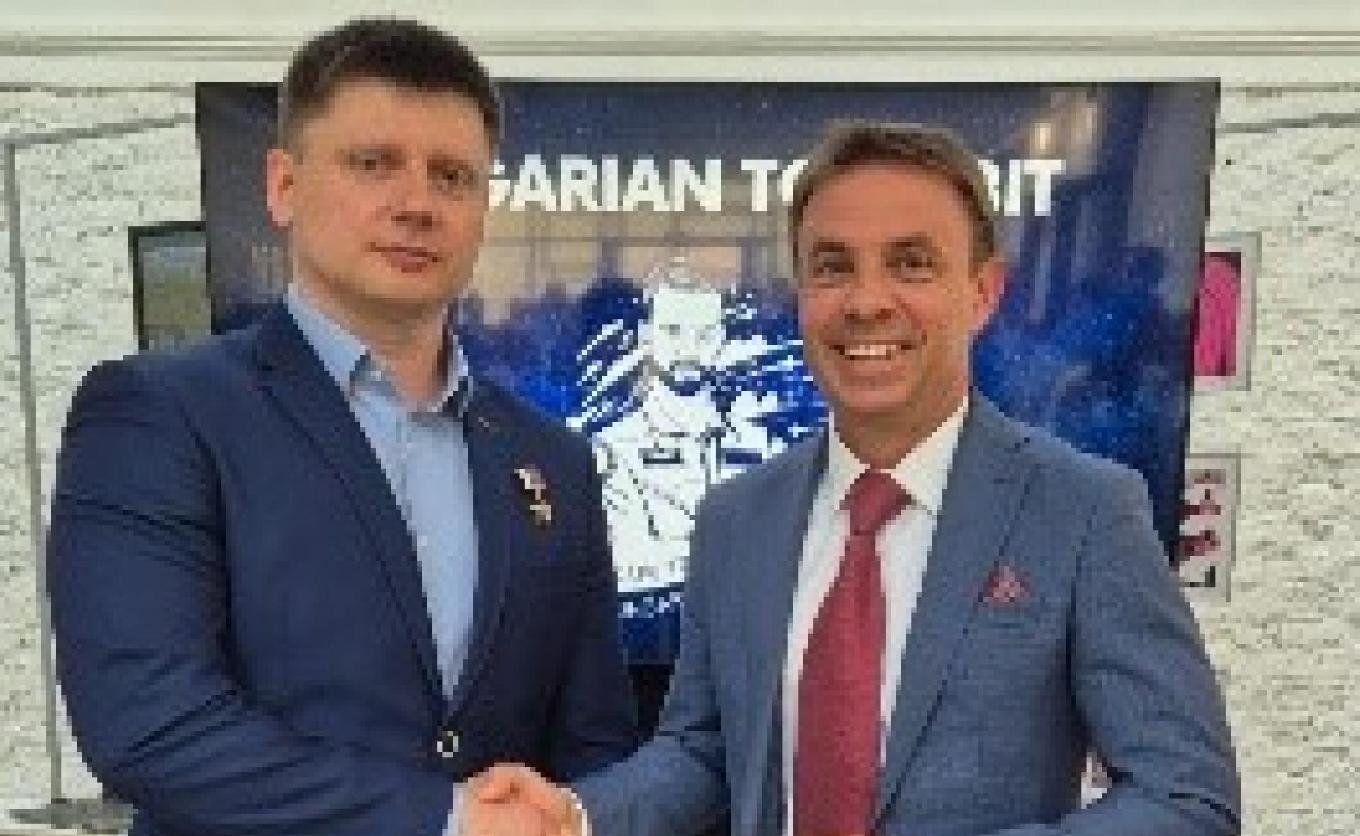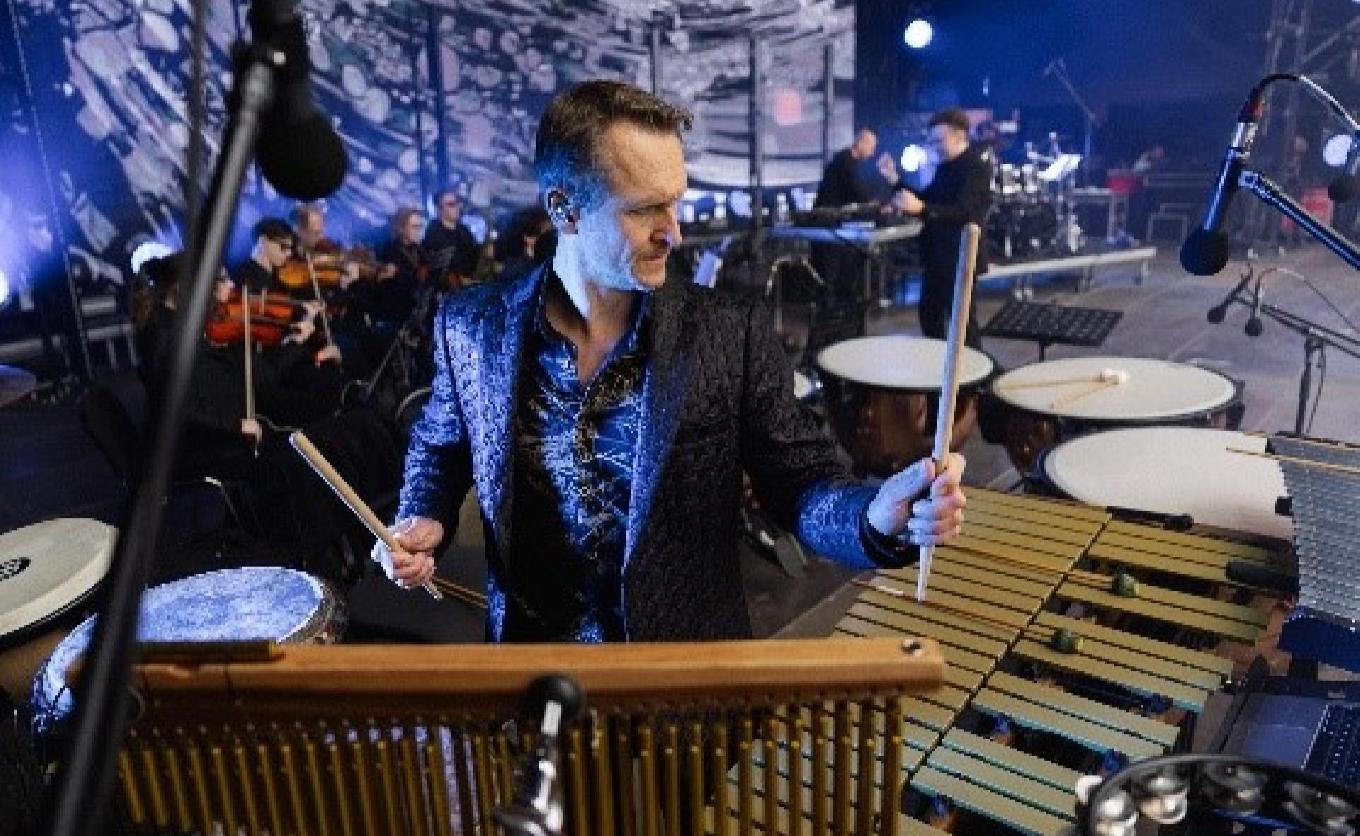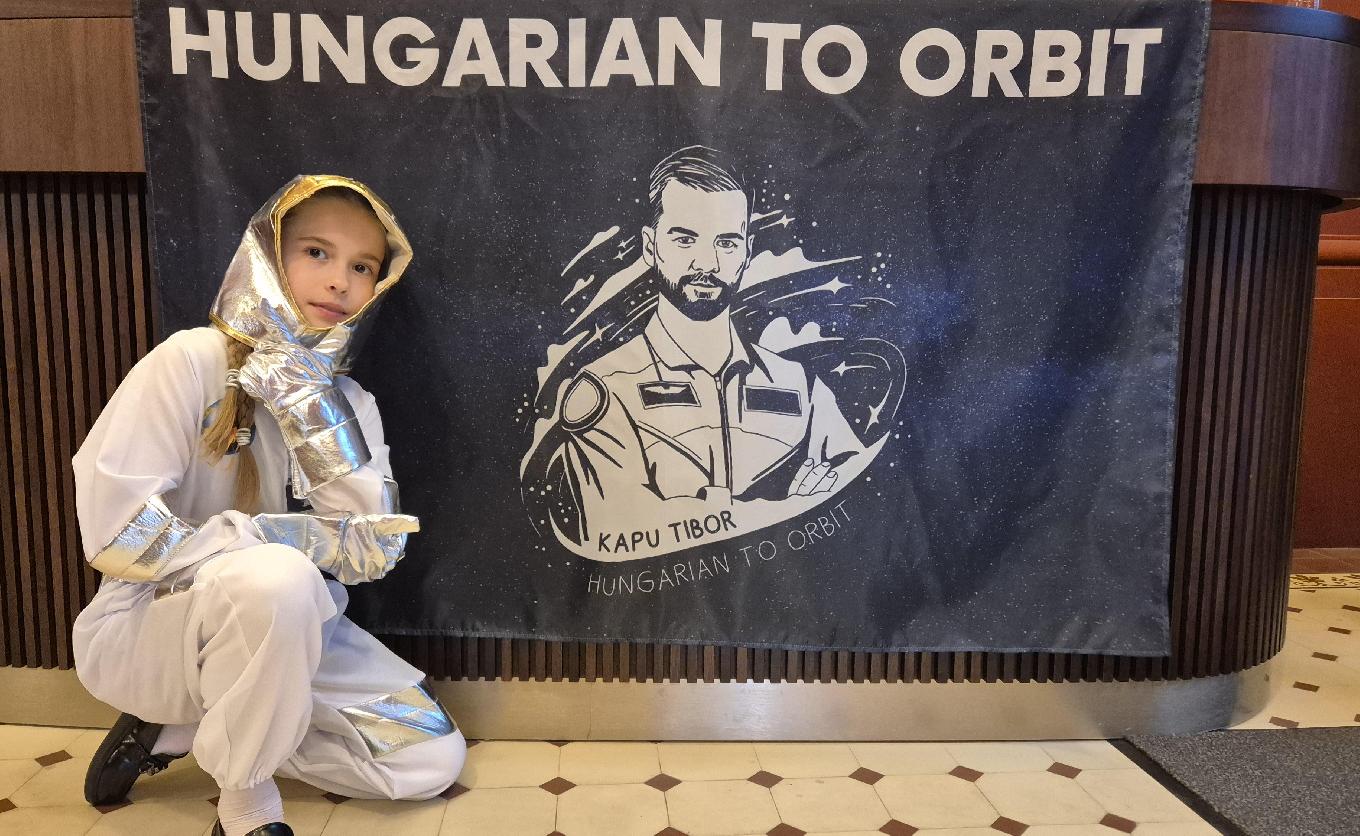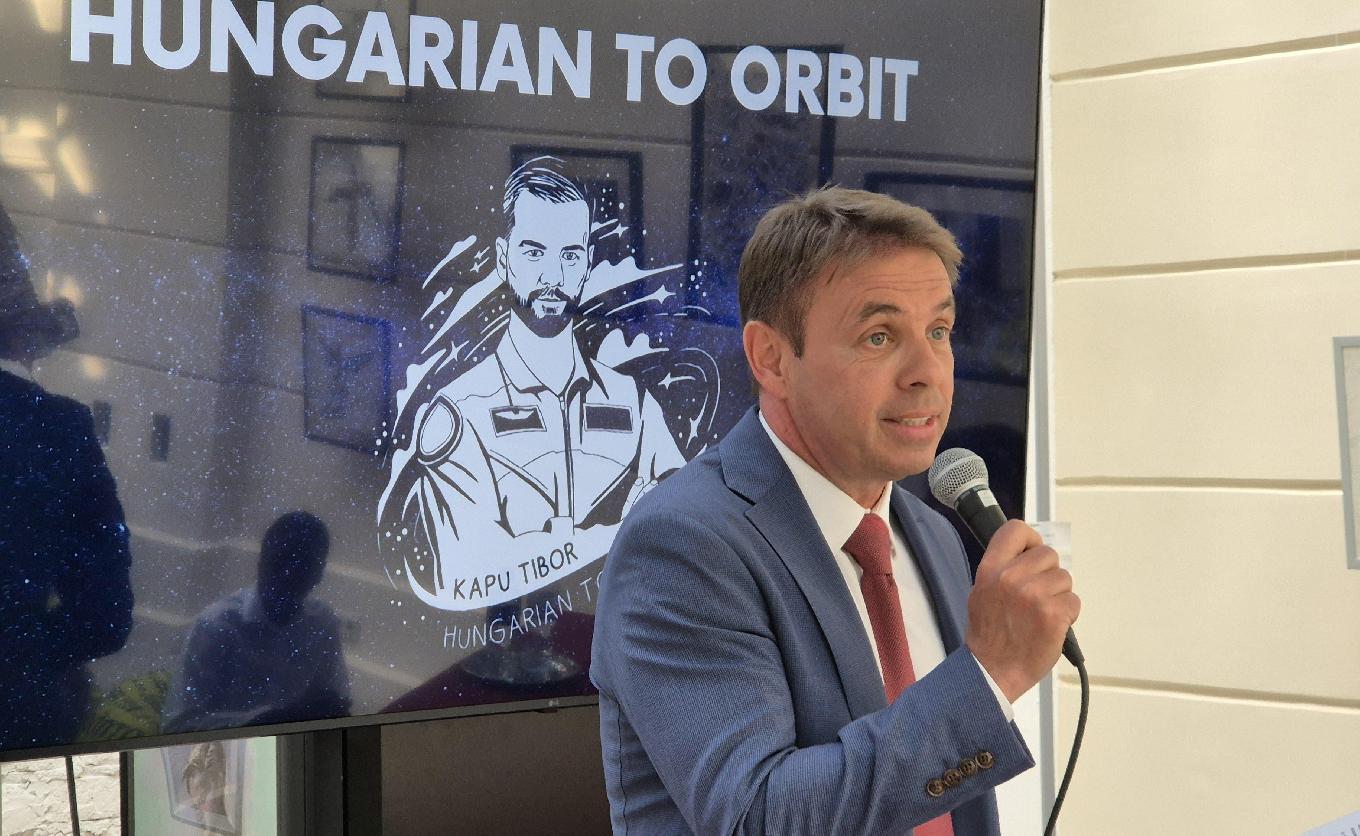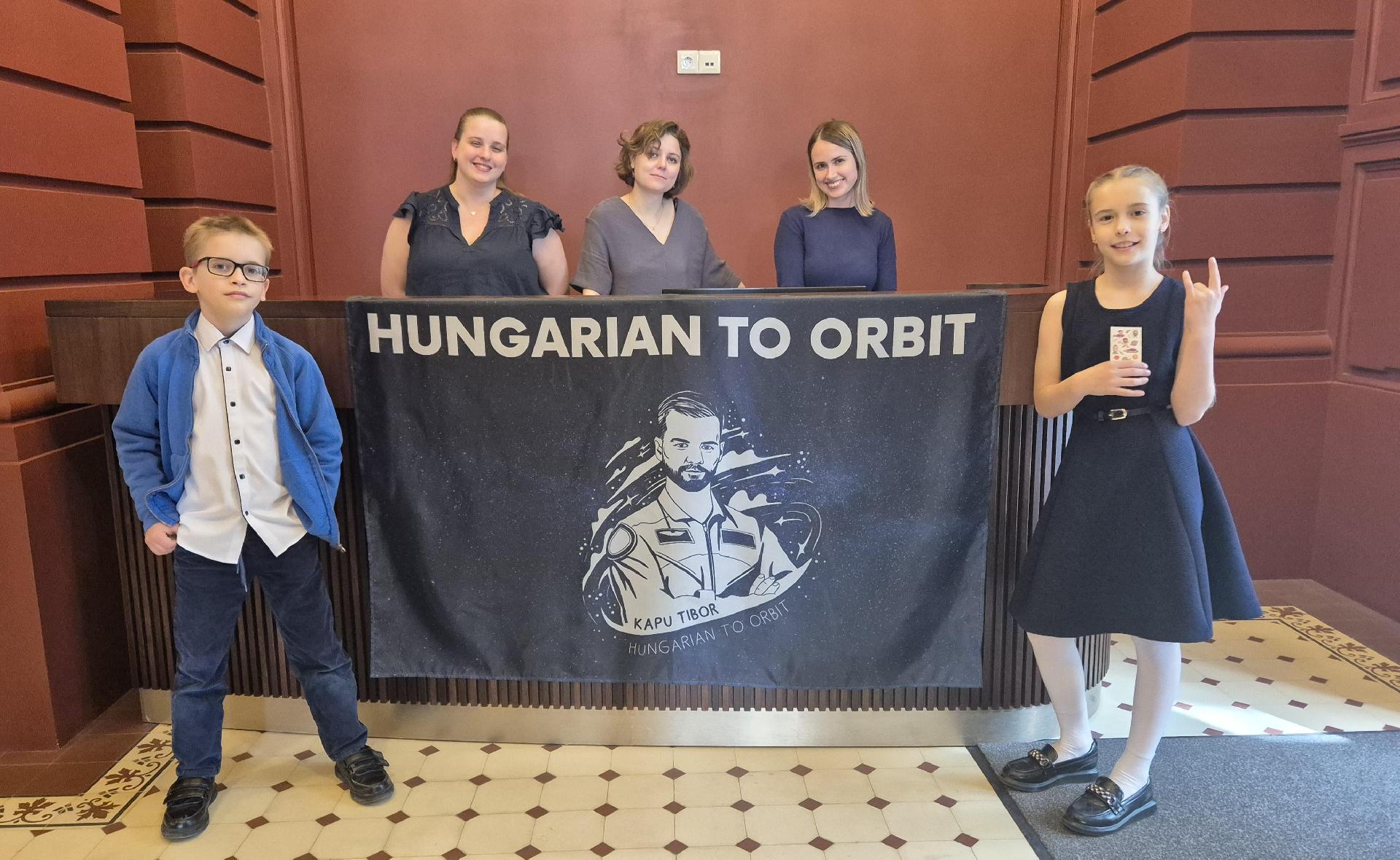
Scorching Summer in Moscow
The Liszt Institute Moscow organized a wide range of exciting and diverse programs in Russia over the summer. Thanks to their efforts, the Hungarian DJ Bootsie Trio gave a highly successful performance at one of Russia’s most popular pop music festivals. They also arranged for the Hungarian reconstruction group, Sons of Tugorkan, to take part in the large-scale historical reconstruction festival called Times and Epochs. On the eve of Hungarian astronaut Tibor Kapu’s actual launch, they hosted a special event honoring Hungarian space exploration, which notably included the participation of an active Russian cosmonaut. Additionally, in cooperation with the science and technology attaché, the Liszt Institute Moscow held the highly successful Stipendium Hungaricum Alumni Meeting for the third time.
On June 13, 2025, the Hungarian DJ Bootsie Trio premiered their show “Bartokosmos” at one of Russia’s most popular contemporary music events, the StereoLeto Festival in Saint Petersburg, accompanied by the prestigious St. Petersburg Symphony Orchestra. The piece consists of uniquely recomposed adaptations of Béla Bartók’s works, characterized by a fusion of organic and synthetic sounds, blending post-bass music with elements of Hungarian folk song collection. The form and soundscape of “Bartokosmos” is defined by a dynamic fusion of organic and synthetic elements, combining post-bass music with the spirit of Hungarian folk song collecting, and merging modern IDM and ambient styles with full symphonic movements. The DJ Bootsie Trio is composed of Vilmos Solymosi (DJ Bootsie) on turntables, Tibor Lázár on drums, and László Grünvald, composer and guitarist of the Talamba Ensemble, performing on a variety of percussion instruments. Organized by the Liszt Institute Moscow, the concert served as both the opening event and a highlight of the festival. Alongside the Israeli band Halal, the Hungarian trio was the only international act featured in the lineup.
Between June 11 and 15, 2025, Moscow hosted the large-scale historical reenactment festival “Times and Epochs.” Visitors were offered a deep and immersive insight into Hungarian history, exploring the everyday lives, work, and leisure activities of people from distant eras. A special guest of the festival was the Hungarian reenactment group Sons of Tugorkan, who brought 11th-century Hungarian history to life over five days in Luzhkov Park. The event attracted several thousand visitors.
Hungary opened a new chapter in space exploration with the launch of its Space Strategy in 2021. As part of the Axiom-4 program, Hungarian astronaut Tibor Kapu will spend fourteen days aboard the International Space Station (ISS), conducting scientific experiments. His mission includes a spin-off project connected to Roscosmos and Hungary’s first cosmonaut, Bertalan Farkas. To celebrate the launch, the Liszt Institute Moscow hosted an exclusive event on June 23. In his welcome speech, Ambassador Norbert Konkoly highlighted Hungary’s contributions to the exploration of outer space. He emphasized that Tibor Kapu’s mission will significantly raise Hungary’s visibility in the field of space research — presenting the country as a nation that contributes not only on Earth but also in space to the future of humanity. Following the opening remarks, Sándor Kozlov, Director of the Liszt Institute, and András Márfi, Science and Technology Attaché, held a conversation with Russian cosmonaut Aleksandr Grebenkin, who shared personal insights from his recent mission and discussed what awaits Tibor Kapu during his upcoming time in space. Audience members had the opportunity to ask questions both during and after the discussion. The Liszt Institute also offered a space-themed children’s program, featuring activities such as board games and a child-sized spacesuit. The evening concluded with a reception, during which Tibor Kapu’s “Highway to Space” playlist was played over the speakers.
On June 24, the Liszt Institute Moscow, in cooperation with the Science and Technology Attaché, hosted the third annual Stipendium Hungaricum Alumni Meeting. The event aimed to strengthen ties among Russian students who studied or are currently studying in Hungary, to deepen their connection to Hungarian culture, and to promote the Stipendium Hungaricum scholarship program. The gathering took place in the newly renovated, historic building of the Liszt Institute, located in the heart of Moscow’s city center. The evening, organised in the style of the 200-year-old Anna Füredi Ball, featured the classical music duo of Péter Gerecze (piano) and Tamás Kovács (trombone). Students from the Tchaikovsky Conservatory of Moscow presented pieces fitting the festive atmosphere. One of the highlights of the evening was the performance by Kátya Gruber, a finalist in the Hungarian X-Factor, and her band. Their repertoire included original compositions, Hungarian folk songs, and pop hits, and — in collaboration with young Hungarian musicians — even a selection from an operetta by Imre Kálmán. In addition to the musical performances, attendees had the opportunity to explore three temporary exhibitions at the Liszt Institute and try out board games developed by the Institute’s staff in one of the rooms. The event attracted 120 guests, doubling last year’s attendance. This increase was partly due to invitations extended not only to Stipendium Hungaricum alumni but also to newly awarded scholarship recipients preparing to study in Hungary. The event’s growing popularity is also a result of the success of previous editions. In his welcoming speech, Ambassador Norbert Konkoly praised the courage, diligence, and intelligence of young people studying in Hungary or preparing to do so — qualities essential for leaving one’s home, country, and comfort zone in search of new challenges and embracing other cultures. András Márfi, Science and Technology Attaché, gave an overview of the Stipendium Hungaricum program’s history in Russia and internationally, while Sándor Kozlov, Director of the Institute, shared insights about the building’s history and current Hungarian-related cultural events. The event was met with tremendous success in Moscow.

